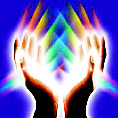Dr. Rajesh Bhola
India
May 03, 2013

India
May 03, 2013

Benjamin
Franklin commented on the difficult path to self-discovery: “There are
three things extremely hard - steel, a diamond, and to know one’s self.”
One learns a lot by studying oneself - particularly the feelings that
influence one’s thoughts, and motivate one’s actions. Pope wrote a poem
that began thus: “Know then thyself, presume not God to scan, the proper
study of mankind is Man.” Syllogistically, understanding oneself would
also enable one to better understand others.
Can one really know oneself? Is one ever somebody? When will I ever see that Am that I Am?
Scores of poets and philosophers dedicated their lives to enquiring
about the Self and trying to understand its elusive mysteries. Some
attained remarkable results, as attested by the legacy of their works;
others remained thirsty. Every thinking human being feels that “I have
an inner self of whom I am ignorant. Who is the real I, where does he
hide from Me? How and what—if at all He is—I have never discovered,
although for the whole of my life I have been looking for him”.
One
of my neuroscientist friends told me that “we are on the verge of a
breakthrough in the understanding of self, thanks to neuroimaging,
neurochemistry and neurogenetics; that Man, haughty Man, will no longer
be a mystery to himself. The heart of all our mysteries will soon open,
and we will be able to understand and control certain human habits”. It is difficult even to conceive what a scientific understanding of self would look like.
Another friend, a psychologist, told me that his patients often ask
him, ‘Doctor, why am I like this?’ or ‘Why do I do the things I do?’
Finding oneself is a journey…not a destination.
A lot of it is trial and error; more often than not, one hits a bump
on the road, or falls flat on one’s face. One must be prepared to
understand and accept that this is a part of a process, and commit to
getting up and starting over. The Gita tells us about seeking the self.
Responding to Arjuna’s confusion and moral dilemma on fighting his
cousins, Lord Krishna explains to Arjuna his duties as a warrior and
prince, and also the different ways in which the soul can discover self,
and reach the Supreme Being: “Wake up! Be thyself! The glory of the
Self is beheld by few. The Self is un-manifested, beyond all thought,
beyond all change. This is true knowledge - to seek the self as the true
end of wisdom always. To seek anything else is ignorance”.
One must resist the urge to feel unique in going through this dilemma of discovering oneself. In Invisible Man,
Ralph Ellison summed this up well: “All my life I had been looking for
something, and everywhere I turned someone tried to tell me what it was.
I accepted their answers too, though they were often in contradiction
and even self-contradictory. I was naive. I was looking for myself and
asking everyone except myself questions which I, and only I, could
answer. It took me a long time and much painful boomeranging of my
expectations, to achieve a realization everyone else appears to have
been born with: that I am nobody but myself.”
“Who
am I?” This question is not static. One should continue to ask this of
oneself throughout one’s life. It updates one’s understanding of who one
is, and how one changes. One must take time out for oneself, to
introspect. In solitude, one should feel independent and self-sufficient – not lonely, needy or afraid. Every person needs time alone – whether one is introverted or extroverted, single or in a relationship, young or old. Solitude
is time for rejuvenation and a talk with self – for trying to attain
peace, and for realizing that purposeful “aloneness” is a liberating
part of one’s overall existence. As long as one continues to exist just
to fulfill other people’s ideas of who one should be, one will never
know who one really is. By all means listen to others and learn from them, but let the final choices, decisions and acceptances be one’s own.
Mahatma Gandhi once said that “the
best way to find 'you' is to lose yourself in the service of others”.
Just introspecting, and not reaching out to others, can cause you to
navel-gaze and shut yourself off from the world. Most people who have
made a great contribution in life have gone through a period of
disenchantment – a time in the wilderness – during which they came to
know themselves better; they not only came to terms with the defeats in
their little stories, but also found their place in the big ones. When
you know yourself closely, know your potential, you can unleash huge
energy. Remove the lid of your ego and find the clear waters below: a
vast source, a sea of energy, which can be tapped for living a
wholesome, constructive and satisfying life.
Our
busy lives are keeping us out of touch with ourselves. Do take a look
inside. If needed, do introduce yourself to your own self. Do not
exercise your mind in knowing others. First, know yourself well – learn
to be 'one with oneself'.
Dr. Rajesh Bhola
is President of Spastic Society of Gurgaon and is working for the cause
of children with autism, cerebral palsy, mental retardation and
multiple disabilities for more than 20 years.
No comments:
Post a Comment